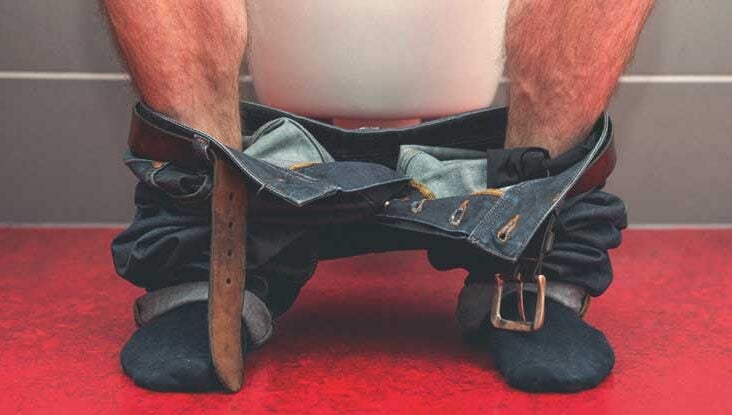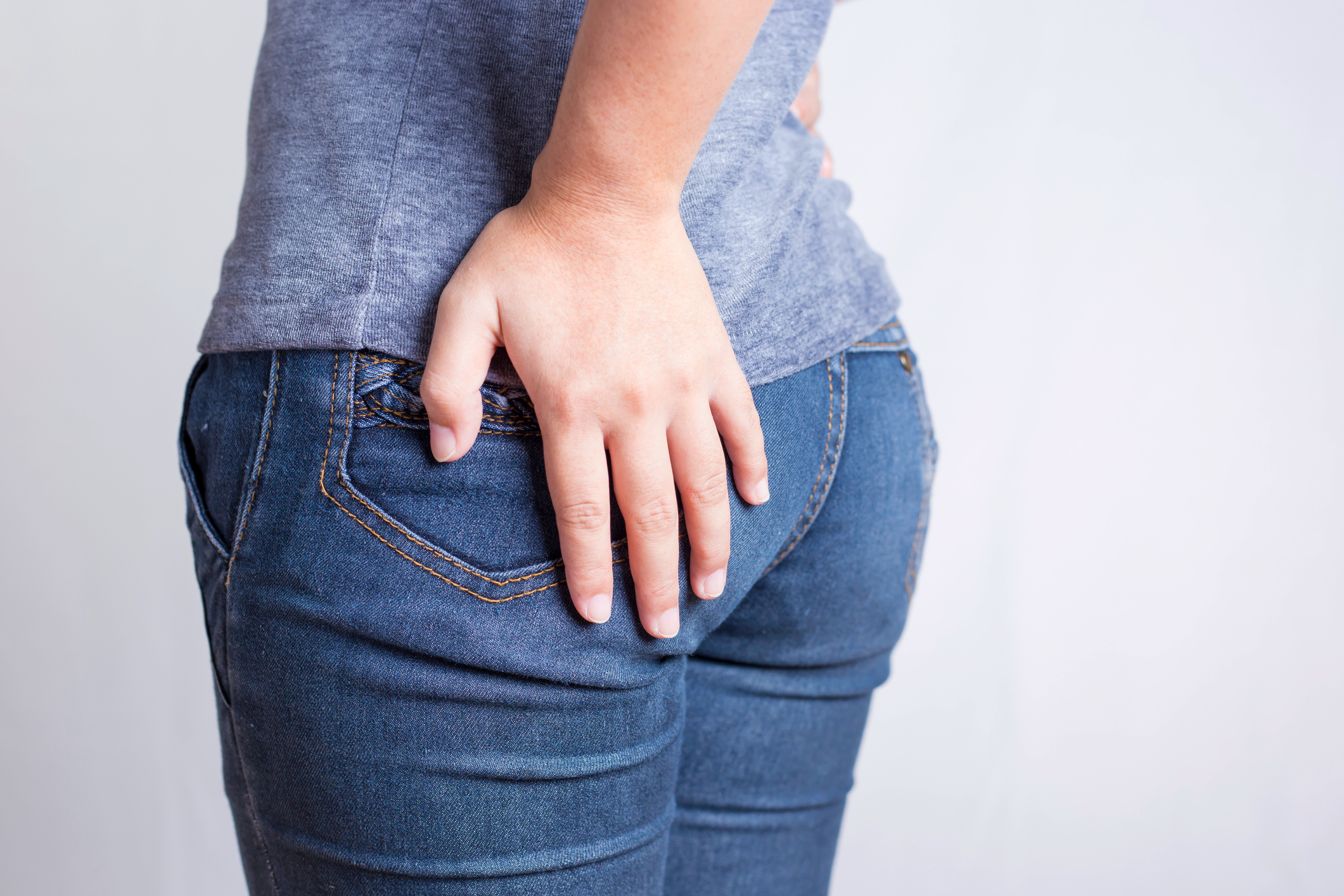Prescription Suppository For Hemorrhoids | Anusol Rectal
Yesterday one of the regular readers asked us Prescription Suppository For Hemorrhoids. Hemorrhoids (HEM-uh-roids), commonly known as piles, are bulging veins in the anus and lower rectum similar to varicose veins in the legs.
In some cases, hemorrhoids form within the rectum (internal hemorrhoids), whereas in others, they develop beneath the skin surrounding the anus (external hemorrhoids).
Hemorrhoids affect almost three out of every four individuals at some point in their lives. Hemorrhoids may be caused by various factors, although the exact reason is frequently unclear.
Hemorrhoids may be treated successfully, thanks to advancements in technology. Many individuals find comfort via at-home remedies and modifications in their way of life.
Table of Contents
Symptoms
Signs and symptoms of hemorrhoids usually depend on the type of hemorrhoid.
External hemorrhoids
These are located just under the surface of the skin surrounding your anus. The following are examples of signs and symptoms:
- Itching or discomfort in the area around your anal opening
- Discomfort or discomfort
- Swelling in the area surrounding your anus
- Bleeding
Internal hemorrhoids
Internal hemorrhoids are hemorrhoids that are located inside the rectum. They are typically not visible or feelable, and they seldom cause any pain or discomfort. However, straining or discomfort when passing feces might result in the following symptoms:
During bowel motions, there is no discomfort or pain. You may discover minor quantities of bright red blood on your toilet paper or in the toilet.
Hemorrhoid pushing through the anal orifice (also known as a prolapsed or protruding hemorrhoid) may cause discomfort and pain.
Prevention
To avoid hemorrhoids, keep your feces soft so that they travel smoothly through your digestive tract. Follow these guidelines to help prevent hemorrhoids and alleviate the symptoms of hemorrhoids:

- Consume foods that are rich in fiber. Increase your consumption of fruits, veggies, and whole grains. This can help you prevent the straining that may lead to hemorrhoids by softening and increasing the weight of your stool.
- Increase the amount of fiber in your diet gradually to avoid gas issues.
- Drink lots of drinks to keep your body hydrated. Drink six to eight glasses of water and other liquids (but not alcoholic beverages) each day to keep stools smooth and easy to digest.
- Take into consideration fiber supplements. The majority of individuals do not consume enough fiber in their diet to meet the recommended daily allowance of 20 to 30 grams. Studies have indicated that over-the-counter fiber supplements, such as psyllium (Metamucil) or methylcellulose (Citrucel), may help alleviate the symptoms of hemorrhoids and the bleeding that occurs as a result of the condition.
- Consume at least eight glasses of water or other fluids each day if you use fiber supplements. Unless used with caution, the supplements may induce or aggravate constipation.
Don’t put too much pressure on yourself. When you strain and hold your breath while attempting to evacuate a stool, you increase the pressure in the veins of the lower rectum, which leads to constipation.
It would help if you went as soon as you sense the desire. If you put off passing a bowel movement until the urge passes, your stool may dry up and become more difficult to give as a result.
Exercise. Maintaining physical activity may help avoid constipation and minimize strain on veins, which can occur while standing or sitting for extended periods. Training may also assist you in losing extra weight, which may be contributing to your hemorrhoids in some instances. Avoid sitting for extended periods. Sitting for an extended period, especially on the toilet, may put additional strain on the veins in the anus.
What Pills Help With Hemorrhoids?
If you want to know what pills help with hemorrhoids, the following pills can help you get rid of them.

- CidalEaze
- Xylocaine Topical
- Hemmorex-HC
- AneCream
- RectiCare
- Proctocort
- Xylocaine Jelly
- Procto-Med HC
- pramoxine
- hydrocortisone / lidocaine
- Preparation H Suppositories
- hydrocortisone / pramoxine
- Proctofoam HC
- Proctozone HC
- Anucort-HC
Hydrocortisone Acetate Suppository Causes
This drug is used to treat haemorrhoids as well as rectum and anus irritation and edoema.
It is also used in conjunction with other drugs to treat some intestinal disorders (such as rectum ulcerative colitis and other rectal/anal inflammatory illnesses).
By lowering swelling (inflammation) directly in the rectum and anus, hydrocortisone suppositories aid to reduce rectal discomfort, itching, bloody diarrhoea, and bleeding. Hydrocortisone belongs to the corticosteroid family of medicines.
Side Effects
It is possible to experience burning, itching, dryness, skin/hair follicle irritation, and changes in skin tone surrounding the rectal region. Inform your doctor or pharmacist right once if any of these symptoms persist or worsen.
It is conceivable that this medicine will be absorbed into the circulation on rare occasions. This may result in corticosteroid side effects.
These adverse effects are more common in youngsters and those who have been taking this drug for a long period.
If you experience any of the following adverse effects, contact your doctor immediately away: unusual/extreme fatigue, weight loss, headache, swelling ankles/feet, excessive thirst/urination, visual issues.

Notify your doctor right away if you experience any of the following serious side effects: new or persistent rectal bleeding, unusual bruising/bleeding, symptoms of stomach/intestinal bleeding (such as stomach/abdominal pain, black/tarry stools, vomit that looks like coffee grounds), bone pain, easily broken bones, mental/mood changes (such as depression, mood swings, agitation), muscle weakness/pain, irregular heartbeat, signs of infection (such as sore throat that
It is uncommon for this medicine to cause a severe allergic response. However, get medical attention immediately if you detect any of the following signs of a severe allergic reaction: rash, itching/swelling (particularly of the face/tongue/throat), extreme dizziness, or difficulty breathing.
This is not an exhaustive list of potential negative effects. Contact your doctor or pharmacist if you experience any additional side effects not mentioned above.
How Do I Use Hydrocortisone Acetate Rectal?
Use this product in the rectum as instructed by your doctor, often twice or three times each day. The duration and amount of medication are determined by your medical condition and reaction to treatment.
If you handle the suppository for too long, it will melt. Remove the suppository.
A few drops of water might be used to wet the tip. Lie on your left side and bend your right knee. With your finger, gently press the suppository, pointed end first, into the rectum, deep enough so that it does not slip back out.
Continue to lie down for a few minutes. Avoid having a bowel movement for at least 1 hour to allow the medicine to take effect.

After each usage, wash your hands. It should be noted that this drug may discolour textiles.
To get the most out of this medicine, take it as directed on a daily basis. Use no more of this substance, no more often, and no longer than advised. Your condition will not improve any quicker, and you may have more negative effects.
If you’ve been taking this drug for a while, don’t stop taking it without first visiting your doctor.
Some problems may worsen if the medicine is abruptly discontinued. Your dosage may need to be reduced gradually.
Suppositories And Hemorrhoids
Hemorrhoids are enlarged blood vessels in the anus and rectum. They might swell and become inflamed, producing pain and discomfort.
Suppositories are solid medicines that are placed into the rectum, where they dissolve and are absorbed via the rectum lining. They are often a mix of an oil or cream and a medication.
For minor hemorrhoid discomfort, over-the-counter (OTC) suppositories work well. There are many sorts of suppositories, each with a different drug for a different outcome.
Swelling and burning may be relieved by several hemorrhoid suppositories. Others may alleviate constipation, which may aggravate haemorrhoids. Many OTC suppositories are also available in prescription strength.
You may also make your own hemorrhoid suppositories. Herbal medicines such as witch hazel and coconut oil may help with haemorrhoids. These suppositories, however, will not include active medicine to relieve swelling and discomfort.
Suppository Vs. Topical
Internal hemorrhoids form inside the rectum, while external hemorrhoids form under the skin surrounding the anus.
Itching, discomfort, and pain are common symptoms of external hemorrhoids. Internal hemorrhoids may also be painful. However, since the tissue lining the interior rectum has fewer nerve endings, they may not be as irritating or unpleasant as exterior ones.
External hemorrhoids are routinely treated with creams, ointments, and pastes for temporary relief. These over-the-counter and prescription medications help relieve burning, itching, and minor discomfort.
Internal hemorrhoids are best treated with suppositories. The medication is absorbed by the rectal tissue and may alleviate the symptoms of hemorrhoids. They may also help to relieve the symptoms of external hemorrhoids.
For a week, suppositories are commonly used two to four times each day. It is preferable to inject after a bowel movement so that the effect lasts longer.

External creams and ointments may be used anytime relief is required. The alleviation, however, is not as long-lasting as that of a suppository. This is because a suppository dissolves more slowly, allowing medicine to be released over a longer period of time.
To avoid difficulties, both topicals and suppositories should be taken for a limited duration.
Hemorrhoids often cause minor bleeding. It is common to observe little quantities of bright red blood on tissue paper or in faeces. A suppository is still safe to use. However, if your feces is black or you observe big quantities of blood in it, contact your doctor.
Best Practice For Using A Suppository
You may insert a suppository on your own. You might also ask a family member for assistance until you grow accustomed to it.
To begin, you will need the suppository and, if available, the applicator that comes with it. You’ll also need soap and a sink nearby. To help insert the drug simpler, some folks use lubricating jelly.
First, make sure the suppository is firm. If the drug is excessively warm, place it in the refrigerator for a few minutes before putting it. The cooling impact will also be beneficial.
If possible, empty your bowels. The longer the drug is allowed to stay in place without being pulled out, the better.
Step 1
Remove your lower clothing and peel off any wrappings from the suppository when you’re ready. Apply a little amount of lubricating jelly to the suppository’s tip. Avoid using petroleum jelly-based products such as Vaseline. It might keep the suppository from melting.
Step 2
Stand with one foot supported up behind a chair. Alternatively, lay on one side with your bottom leg straight and your top leg tucked under your tummy. Take a deep breath and relax your buttocks.
Step 3
Insert the suppository into your rectum, narrow side first. Push the suppository into your body gently but firmly, ensuring sure it’s at least one inch beyond the anal sphincter.
Step 4
Spend at least 15 minutes sitting or laying down. This permits the suppository to dissolve and the absorption process to commence.
Step 5
After 15 minutes, dress and then discard any wrappings. Please wash your hands.
Useful Hints
Avoid using the restroom for at least an hour. This allows the drug to act longer before being rinsed or wiped away by urine or a bowel movement.

If you use a suppository with a gauze insert, keep the gauze in place for at least an hour. After an hour, you can tug on the string to remove it from the rectum.
Options For Suppositories
There are several varieties of suppositories available, each with its own active component. Here’s a comparative chart of OTC suppositories:
Online shopping for OTC suppository choices.
Most over-the-counter suppositories are intended to be used for a short length of time. If the therapies do not relieve or eliminate symptoms after one week, discontinue use and see your doctor.
Your doctor may also recommend alternative therapy, such as a prescription-strength suppository:
Home Cures And Herbal Treatments
You may produce and utilise alternative suppositories in addition to OTC and prescription medicated suppositories. These are intended to give comfort and relief, but they lack active substances that may decrease swelling, irritation, and discomfort.
Hemorrhoids may be treated with coconut oil suppositories. These are made by freezing tiny cylinders of coconut oil. When it’s time to inject the suppository, take one out and rapidly slide it into the rectum.
The cooled oil offers immediate comfort. Because of its anti-inflammatory effects, coconut oil may potentially give long-term comfort.

You may also produce your own suppository laxatives. Mineral oil and a solid oil, such as coconut oil or cocoa butter, should be combined. Freeze into cylinders and take one out when ready to install.
Mineral oil is absorbed by the body and may aid in the passage of faeces through the intestines.
Caution
Without a doctor’s approval, do not take over-the-counter hemorrhoid medicine for more than one week. The medications in suppositories and other medications might irritate the sensitive tissues in and around the rectum. They may also cause skin irritation, redness, and thinning.
Use prescription hemorrhoid medicine no more regularly than advised by your doctor. If the medication isn’t giving you adequate relief, see your doctor about additional possibilities.
In Conclusion
Hemorrhoids may be treated using suppositories. They are most suited to alleviate the discomfort and anguish caused by internal hemorrhoids. They’re an excellent choice when ointments, lotions, or medicated wipes are ineffective.
OTC suppositories should be used just for a short duration. When used too regularly, they might cause discomfort and redness.
If OTC medications do not offer relief and you need to explore another choice, see your doctor.
